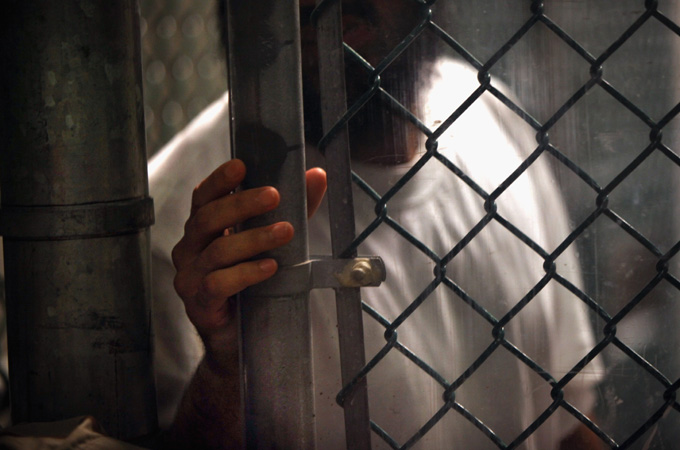Rule of law in full retreat
‘How can the US set the standard for equal justice and human rights when its own moral authority lies in ruin?’

 |
| For 10 years, Guantanamo Bay detention facility has been operating outside the rule of law [GALLO/GETTY] |
Washington DC – President Obama recently announced that, by the end of 2011, all United States military forces will be withdrawn from Iraq.
Reportedly, the US would like to have established some lasting military presence in Iraq (similar to that in Kuwait and other friendly nations); but this scenario was not possible because the US and Iraq could not agree upon the terms of a “status of forces agreement” (SOFA).
Such agreements generally permit the United States to exercise jurisdiction over certain criminal matters involving United States service members, rather than having service members prosecuted by host-nation authorities. So, in essence, the reason the US had to withdraw all its troops is because the Iraqis do not trust the United States’ legal system.
And who can blame them?
In recent years, Iraq watched the US’ response to the widely-publicised atrocities at Abu Ghraib by prosecuting only the lowest-ranking offenders (with no meaningful accountability at higher levels). Iraq also witnessed a complete lack of accountability when American employees of “Blackwater” allegedly killed dozens of Iraqi civilians in Nisour Square.
These were not exactly shining examples of “American justice” in action.
|
Inside Story Americas: A decade of Guantanamo |
But perhaps the most obvious reason the Iraqis might be suspect of the American legal system is that, for the past 10 years, the most visible example of “American justice” has been the confinement of Muslims at Guantanamo Bay without a trial of any kind.
Reaping a poisonous crop
For 10 years, the US has clearly demonstrated it applies one set of legal rules to Americans and another to non-Americans. The first set respects due process, the rule of law, individual rights and the concept of innocent until proven guilty.
Unfortunately, the second set involves enhanced interrogation, indefinite detention and a presumption of guilt without any opportunity to prove innocence.
So, having planted the seeds of legal inequality, the US has now begun to reap a poisonous crop. And its inability to negotiate a SOFA with Iraq is likely one of many serious consequences.
While the US continues to characterise its policies in easily-digestible terms for domestic consumption (such as “war on terror” and “homeland security”), the world opinion of the US and its commitment to justice is on decline and has changed forever.
How can the US set the standard for equal justice and human rights when its own moral authority lies in ruin?
The Arab spring has presented opportunities for meaningful change throughout the Middle East. Unfortunately, the US has placed itself in a poor position to extend the hand of friendship or to provide an example for new democracies to follow.
This is especially true for those countries still represented amongst the suffering population of Guantanamo Bay, 95 per cent of whom will never receive a trial or an apology for the treatment they endured or their ruined lives. Why does the US assert its right to hold human beings for life without trial in its never-ending battle against “terror”?
The only justification that I can see is “because it can”.
Lt Col Wingard is a military lawyer who represents Fayiz al-Kandari and has served for 28 years in the military. When not on active duty, he is a public defender in the city of Pittsburgh.
The views expressed in this article do not represent the views of the Department of Defence or the United States government.
The views expressed in this article are the author’s own and do not necessarily reflect Al Jazeera’s editorial policy.
